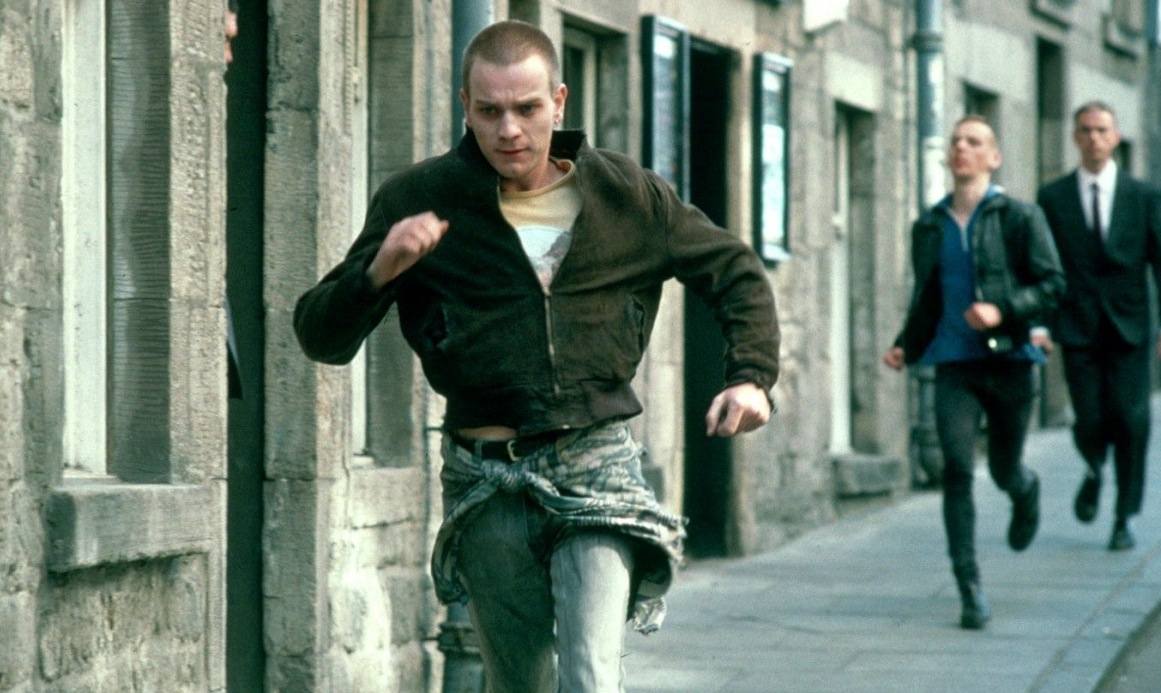VOD film review: Trainspotting
Review Overview
Match of style and substance(s)
10Soundtrack
9Josh Slater-Williams | On 28, Jan 2017
Director: Danny Boyle
Cast: Ewan McGregor, Robert Carlyle, Jonny Lee Miller, Ewen Bremner
Certificate: 18
Watch Trainspotting online in the UK: All 4 / BritBox / Curzon Home Cinema / Apple TV (iTunes) / Prime Video (Buy/Rent) / Rakuten TV / Google Play
At the time of writing, as its 20-years-later sequel arrives in the UK, looking back at Danny Boyle’s Trainspotting with fresh eyes proves something of a challenge. Its legacy in terms of British cinema remains relatively undiminished, from the front and behind camera careers it sent skyrocketing and its iconic dialogue and sequences to its international success, and how it helped re-shape what UK movies breaking into the mainstream could be.
As one of the flagship films of the so-called Cool Britannia movement of the mid-90s, it’s one of the few media artefacts of the period that holds up remarkably well. Why is this? Well, a major part is that, despite the irreverence and exuberance on display, Boyle and screenwriter John Hodge, in adapting Irvine Welsh’s novel of the same name, never shy away from the fact that their protagonists are bad people. They’re charismatic as hell, particularly ostensible hero Renton (McGregor), but, to paraphrase Renton’s own words about the English, “they’re just wankers”. Bar Kevin McKidd’s Tommy, sent down a path of drugs and diseased decay by Renton’s actions, Boyle and Hodge wisely refrain from framing these addicts of various types (from heroin to the rush of physical violence) as aspirational, despite the energy surrounding their mishaps.
Though criticisms of glorification were thrown the way of the film at the time, it was largely from conservative media figures that hadn’t even seen a snippet of footage. In the age of never-ending online thinkpieces and ‘hot takes’, too many of which are written in bad faith by performatively woke pundits who’ll too often not actually watch the film they’re tearing apart for cultural or moral transgressions, one wonders what sort of reception Trainspotting may have received were it released today.
That whole character framing factor is key, because although Boyle and Hodge’s approach is easily inferable to those who engage with what the film is doing, excluding Renton describing himself as a “bad person” in the closing monologue, it’s not a case of the filmmakers spelling things out in massive letters for those who might not quite have got the gist over the majority of the runtime. In that sense, you could see a similar cultural discourse happening to that which occurred with Martin Scorsese’s The Wolf of Wall Street, another film that is rife with dark comedy – and, indeed, excessive drug consumption – while portraying very bad individuals who screw over even more people. Scorsese makes the horrors of Jordan Belfort’s tyranny all too clear as that film progresses, but the cinematic form for much of its runtime is heavily based around replicating the rush of a coke binge, getting you into the leads’ personal mindset, much like Boyle does with heroin in Trainspotting. As a result, though, certain viewers were keen to suggest Scorsese endorsed Belfort.
Trainspotting would seem a likely candidate for such a bad interpretation, but a revisit does suggest another, relating to a theme popular in cultural discourse right now: toxic masculinity. At multiple points in the film, Renton, or a supporting player like Tommy, will detail an anecdote of another character indulging in horrific behaviour with nary an interjection from them as an observer. The repeated defence for letting men behaving badly slide: “But he’s a mate, so what can you do?” Fittingly, Renton is finally free at the end by abandoning his toxic friends, although he makes a concession towards the least harmful of the remaining trio. Life begins when you finally accept that the poisons in your life can no longer be allowed to be a part of it. Well, until there’s a sequel.
Trainspotting is available on BritBox, as part of a £5.99 monthly subscription. It is also available on All 4 until 8th January 2022.






















